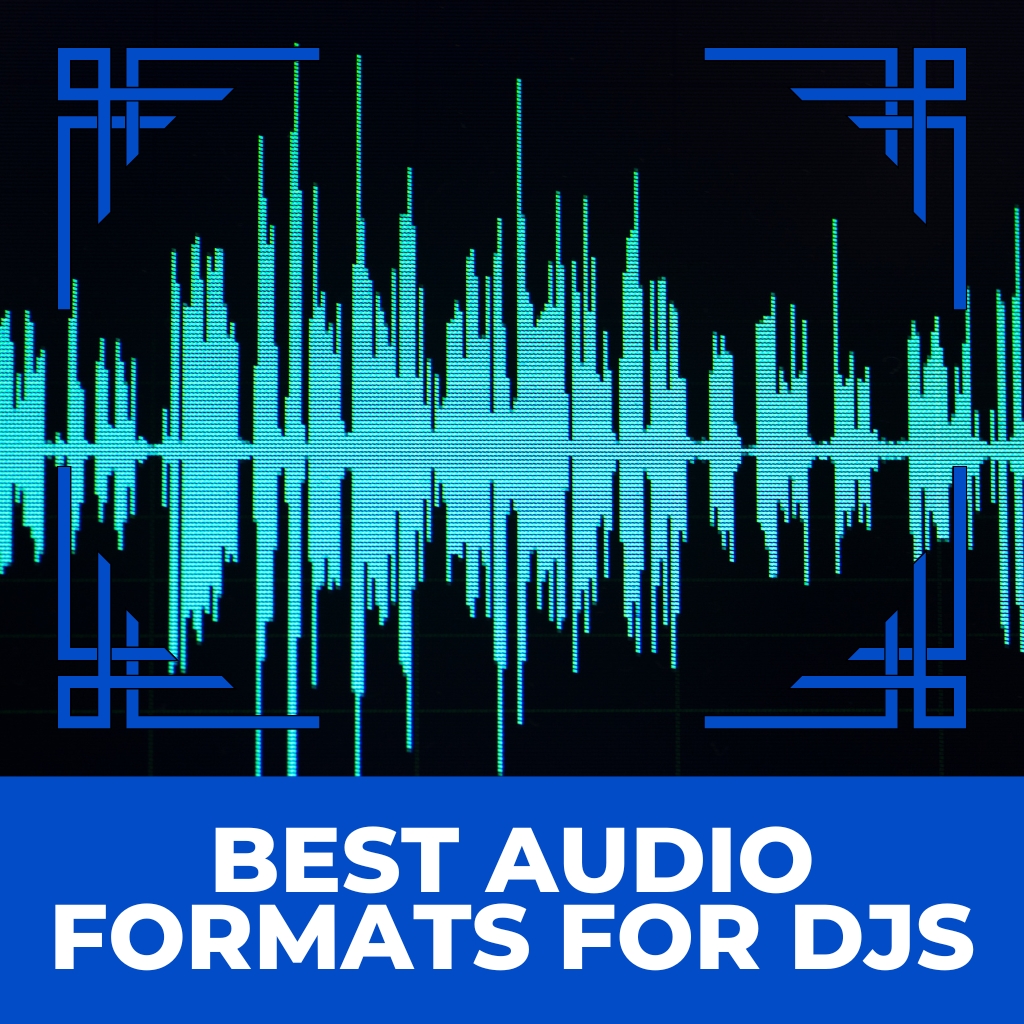In the rapidly evolving world of DJing, selecting the best audio format can be a critical decision to ensure high-quality sound and reliable performance. This comprehensive guide will help you understand the advantages and disadvantages of different audio formats to make an informed decision for your DJ sets.
Lossless vs Lossy Audio Formats
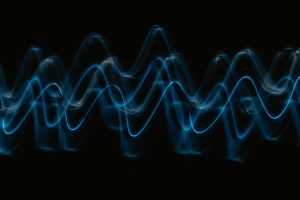
There are two primary categories of audio formats: lossless and lossy. Lossless formats retain all of the original audio data, ensuring the highest quality sound. Lossy formats compress audio data, discarding some information to reduce file size. While this can save storage space, it can also result in a loss of sound quality.
Lossless Audio Formats
- Preserve original audio data
- Offer the highest sound quality
- Larger file sizes
Lossy Audio Formats
- Compress audio data
- Smaller file sizes
- Potential loss of sound quality
The Most Common Audio Formats for DJs
WAV

WAV (Waveform Audio File Format) is a popular lossless format, known for its high-quality sound and compatibility with various devices and software. Developed by Microsoft and IBM, WAV files retain all original audio data, resulting in larger file sizes but superior sound quality.
Pros:
- High sound quality due to lossless compression.
- Excellent compatibility with various devices and software.
- Retains all original audio data.
Cons:
- Large file sizes, which can consume significant storage space.
- No built-in metadata support.
- Less efficient compression compared to other lossless formats.
AIFF

AIFF (Audio Interchange File Format) is another lossless format, similar to WAV in terms of quality and file size. Developed by Apple, AIFF files are compatible with most DJ software and hardware, making them a popular choice among DJs.
Pros:
- Excellent sound quality as a lossless format.
- Good compatibility with most devices and software.
- Supports metadata for organizing and tagging audio files.
Cons:
- Large file sizes, similar to WAV.
- Not as widely supported as WAV or MP3.
- Inefficient compression compared to other lossless formats like FLAC.
FLAC

FLAC (Free Lossless Audio Codec) is a popular open-source lossless format that offers excellent sound quality while maintaining smaller file sizes than WAV or AIFF. FLAC files are compatible with most DJ software and hardware, making them an excellent choice for DJs seeking high-quality sound without the storage requirements of other lossless formats.
Pros:
- High-quality audio with lossless compression.
- Smaller file sizes compared to WAV and AIFF.
- Open-source and widely supported by DJ software and hardware.
Cons:
- Not as universally compatible as WAV or MP3.
- Slightly larger file sizes than lossy formats.
- May require additional software or plugins for playback on some devices.
ALAC

ALAC (Apple Lossless Audio Codec) is a lossless format developed by Apple, offering a similar level of quality to FLAC but with compatibility focused on Apple devices and software. ALAC files can be an ideal choice for DJs using Apple products or those who prioritize seamless integration with the Apple ecosystem.
Pros:
- Excellent sound quality as a lossless format.
- Smaller file sizes than WAV and AIFF.
- Seamless integration with Apple devices and software.
Cons:
- Limited compatibility outside of the Apple ecosystem.
- Not as widely supported as other lossless formats like FLAC.
- Larger file sizes compared to lossy formats.
MP3

MP3 (MPEG-1 Audio Layer 3) is a widely-used lossy format that offers smaller file sizes while still maintaining an acceptable level of sound quality. While MP3 files are not as high-quality as lossless formats, their compatibility and reduced storage requirements make them a popular choice for DJs, especially for large music libraries.
Pros:
- Small file sizes due to lossy compression.
- High compatibility across devices and software.
- Supports metadata for organizing and tagging audio files.
Cons:
- Lower sound quality compared to lossless formats.
- Loss of audio data during compression.
- Outdated and less efficient compared to newer lossy formats like AAC.
AAC

AAC (Advanced Audio Codec) is another lossy format, developed as an improvement over MP3. AAC files generally provide better sound quality at similar bit rates and smaller file sizes. Many DJs choose AAC for its balance between sound quality, file size, and compatibility with various devices and software.
Pros:
- Good sound quality for a lossy format.
- Smaller file sizes compared to MP3 at similar bit rates.
- Broad compatibility with devices and software.
Cons:
- Not as high-quality as lossless formats.
- Loss of audio data during compression.
- Some devices or software may require additional plugins for playback.
Comparing Audio Formats: A Detailed Analysis
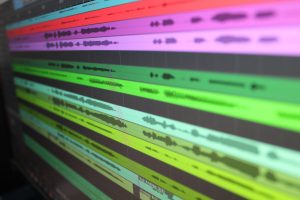
To help you make an informed decision about the best audio format for your DJ sets, here is a detailed comparison of the most common formats, considering factors such as sound quality, file size, and compatibility.
| Format | Type | Sound Quality | File Size | Compatibility |
|---|---|---|---|---|
| WAV | Lossless | Excellent | Large | High |
| AIFF | Lossless | Excellent | Large | High |
| FLAC | Lossless | Excellent | Medium | High |
| ALAC | Lossless | Excellent | Medium | Moderate |
| MP3 | Lossy | Good | Small | High |
| AAC | Lossy | Good | Small | High |
Selecting the Best Audio Format for Your DJ Set
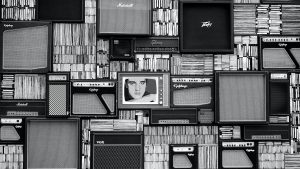
Choosing the right audio format for your DJ set depends on your priorities and the specific requirements of your DJ setup. Here are some key factors to consider when selecting an audio format:
- Sound Quality: If sound quality is your top priority, lossless formats like WAV, AIFF, FLAC, or ALAC are the best choices. These formats retain all original audio data, ensuring the highest sound quality possible.
- File Size: If you have limited storage space or need to manage a large music library, lossy formats like MP3 or AAC can help reduce file sizes without sacrificing too much sound quality.
- Compatibility: Ensure that your chosen audio format is compatible with your DJ software, hardware, and any devices you plan to use during your performance.
- Personal Preference: Ultimately, the choice of audio format comes down to your personal preferences and priorities. Experiment with different formats to find the one that best meets your needs and delivers the desired sound quality during your DJ sets.
Tips for Optimizing Your Audio Files
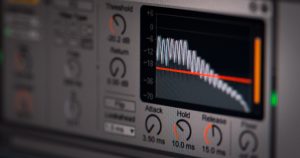
To ensure the best possible performance during your DJ sets, follow these tips for optimizing your audio files:
- Choose High Bit Rates: When using lossy formats like MP3 or AAC, select higher bit rates (e.g., 320 kbps) to minimize sound quality loss.
- Organize Your Music Library: Keep your music library organized with a consistent file structure, file naming conventions, and metadata (e.g., track titles, artists, genres) to simplify navigation and track selection during your DJ sets.
- Backup Your Files: Regularly back up your audio files to prevent data loss and ensure you always have access to your music library.
- Test Your Files: Test your audio files on your DJ setup before your performance to ensure compatibility and troubleshoot any potential issues.
Conclusion
Selecting the best audio format for your DJ sets is crucial for delivering high-quality sound and ensuring a smooth performance. By understanding the advantages and disadvantages of different audio formats and considering factors such as sound quality, file size, and compatibility, you can make an informed decision that best suits your needs and preferences. Experiment with various formats to find the perfect balance between sound quality, file size, and compatibility for your DJ setup. By optimizing your audio files and keeping your music library organized, you can ensure a seamless and enjoyable experience during your performances. Happy DJing!
Don’t know where to download high quality music with the best audio formats for your DJ sets? We got you covered! Sign up to Wedding DJ Pool today and gain access to unlimited music downloads, quality music, and the music library of your dreams!

 UPGRADE
UPGRADE 